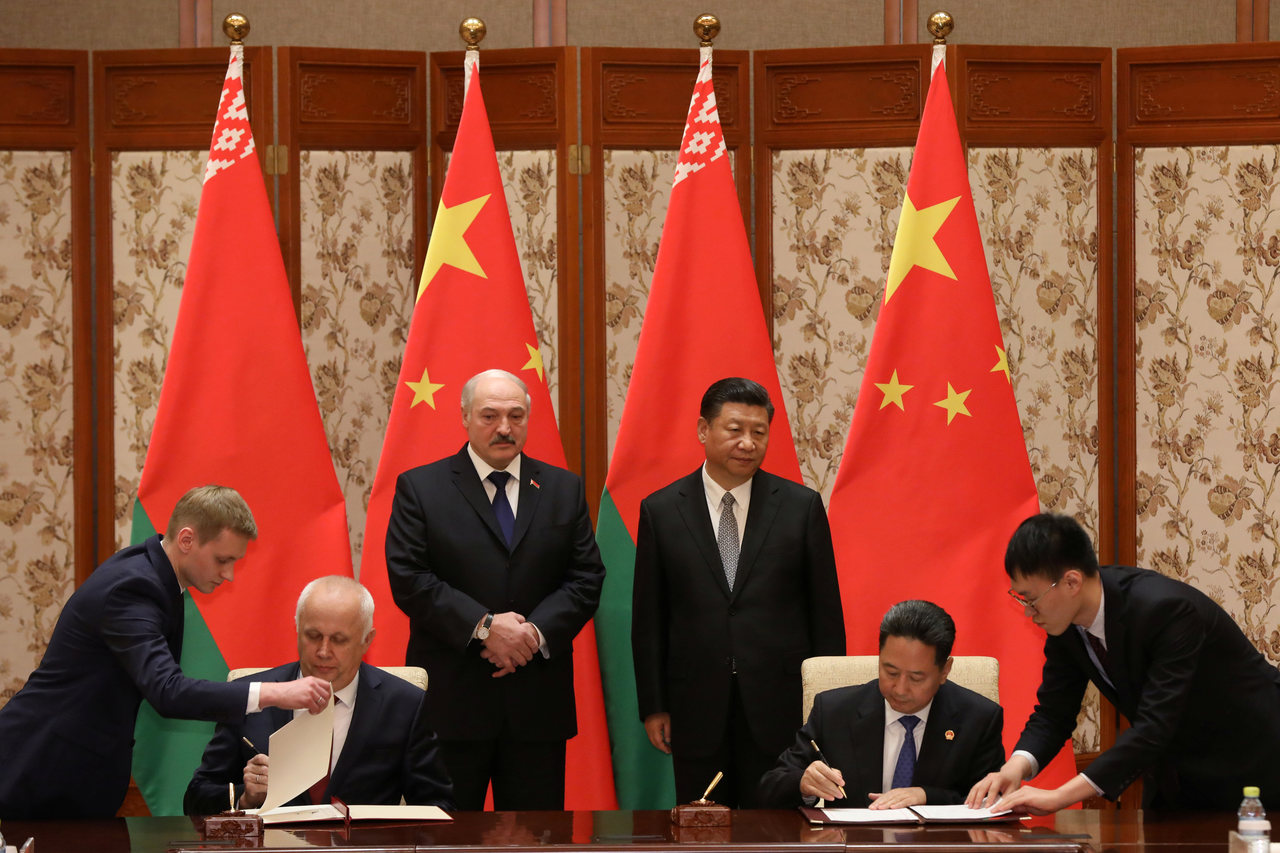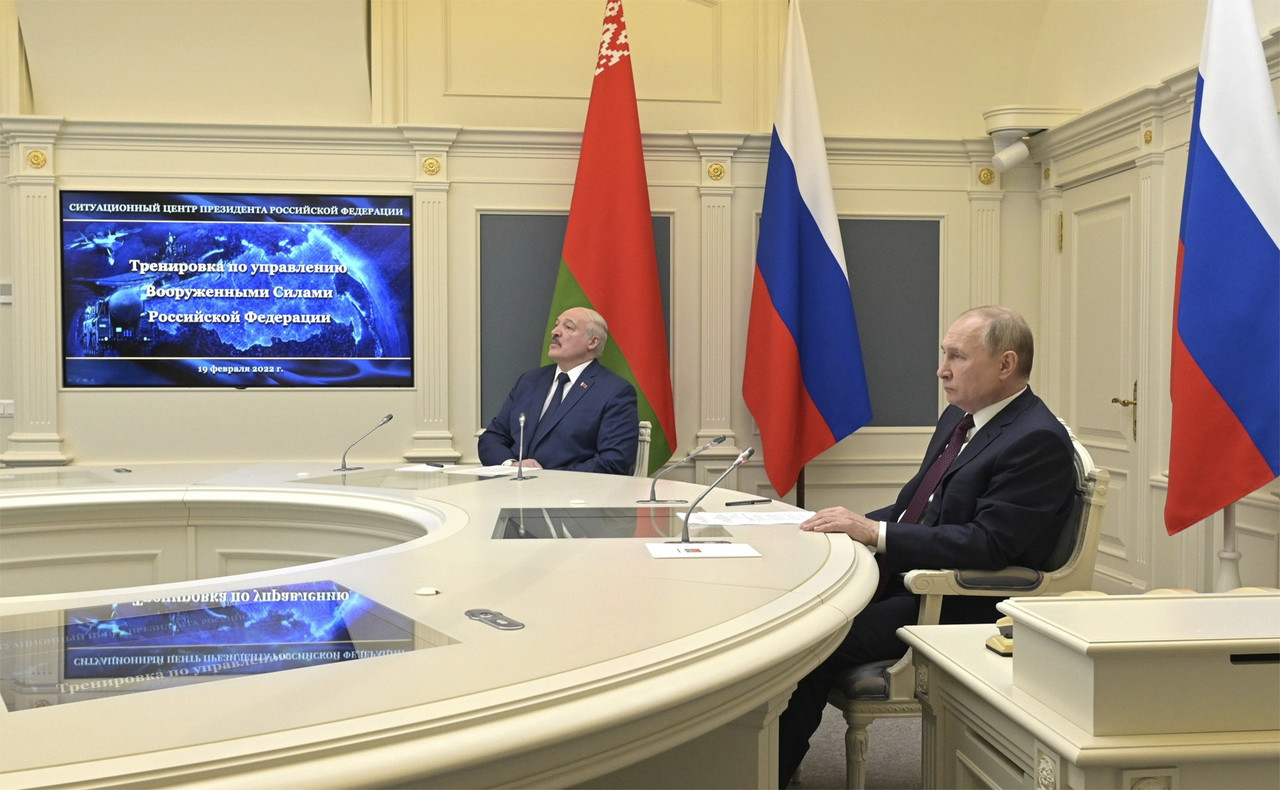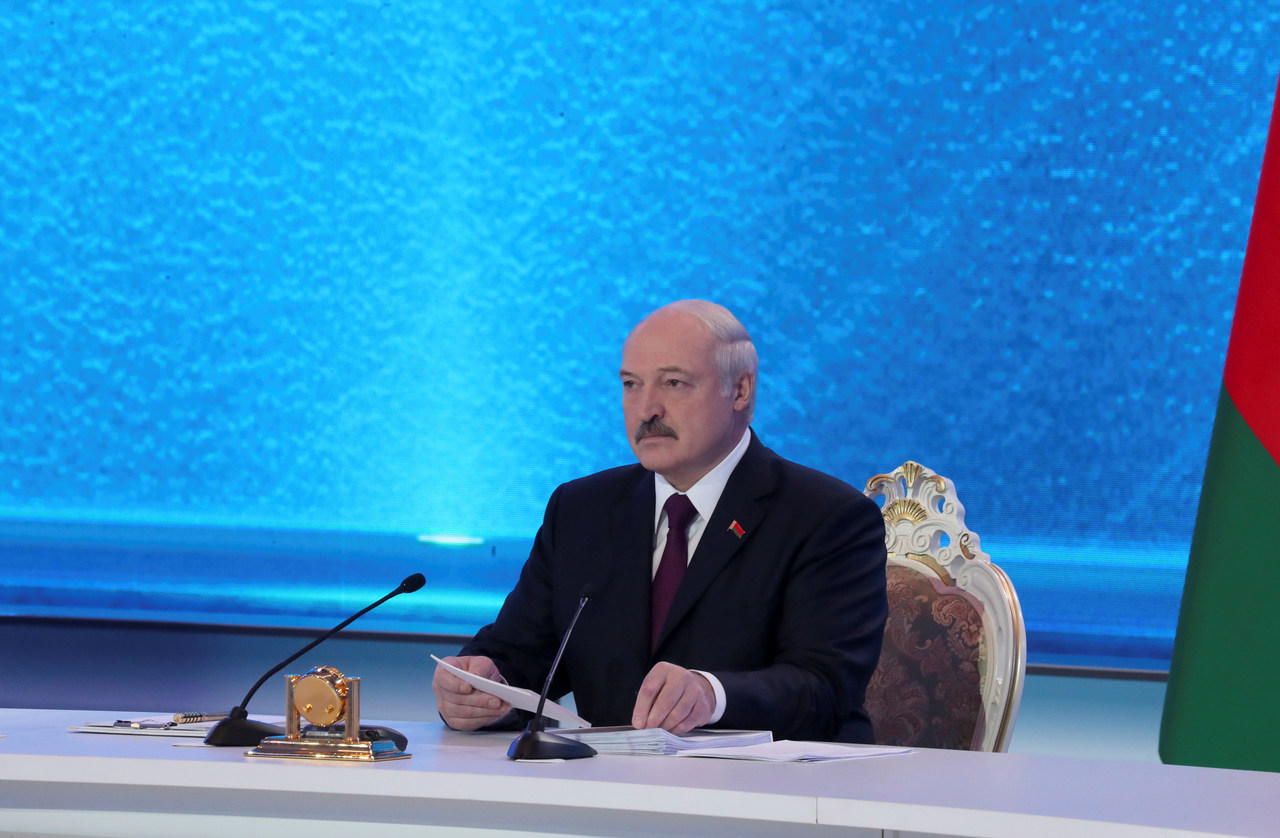Belarusian Foreign Policy Priorities Present Challenges for Poland
The signing of an agreement on the deployment of non-strategic Russian nuclear weapons on Belarusian territory is the realisation of one of the foreign policy priorities set out by Alexander Lukashenka in deepening the alliance with Russia. Belarus is also developing cooperation with other countries in Asia, the Middle East, and Africa. At the same time, it will continue to pursue a policy that is hostile towards Western countries, especially Poland, and towards Ukraine. Together with increasing military and special services cooperation between Belarus and Russia, this will raise additional challenges for NATO members, especially the Eastern Flank states, in deterrence and defence and building resilience to hybrid threats.
.jpg) SPUTNIK / Reuters / Forum
SPUTNIK / Reuters / Forum
Deepening Dependence On Russia
The signing by Belarus of the agreement allowing the stationing of Russian tactical nuclear weapons on its territory is a complete reversal of its previous policy of maintaining neutrality. The agreement further increases Russian control over Belarus and limits the latter’s sovereignty. Lukashenka signed it despite the clearly negative attitude of Belarusians towards Russian nuclear weapons. The agreement, however, is now an element of Lukashenka’s foreign policy, which, after the rigged 2020 presidential election and protests, he has based on a close alliance with Russia. Since 2020, the two countries have also significantly accelerated their economic integration, reflected in the signing of 28 integration programmes in November 2021 and an announcement that both states are working on additional deals.
In deepening their military alliance, both states published in February 2022 a new version of the Union State war doctrine. Belarus made its territory available to Russia for the military invasion on Ukraine, making it also an aggressor state. The Union State security concept is also being developed. The two countries have increased the number of joint military exercises, a significant part of which will take place near the border with NATO countries, and they signed an agreement on military-technical cooperation and developing a Regional Forces Group, which facilitates the stationing of Russian soldiers in Belarus.
Strengthening Relations with the Regimes
Presenting his foreign policy priorities in March this year, Lukashenka announced that Belarus would also focus on cooperation with Asian countries. He views Belarusian contact with China, Iran, and organisations such as the Eurasian Economic Union, the Shanghai Cooperation Organisation, BRICS, and the Collective Security Treaty Organisation as a priority.
At the same time, the Belarusian authorities consider Poland, the U.S., Lithuania, and Ukraine, as well as NATO, to be hostile to it. One of the priorities of the Belarusian diplomacy’s efforts is the creation of a broad anti-Western coalition, which is primarily driven by domestic political needs. The Belarusian authorities point to an external enemy to blame for political failures and economic difficulties, which in reality are caused by, among other things, the growing state budget deficit and a drop in GDP (in 2022 it decreased by 4.7%). Spreading fear of war with NATO and Alliance-led hybrid operations is also aimed at consolidating the public around the authorities and destroying the positive image of Western states. It also serves to convince citizens of the need to deepen the alliance with Russia and to increase the powers of the secret services.
Ways of Implementing the Priorities
The development of relations with countries in Asia, Africa, and South America has an anti-Western political dimension and is driven by the need to at least partially offset the effects of the EU sanctions imposed on Belarus. The Belarusian authorities are developing contacts with countries critical of the U.S., NATO, and the EU, and is supporting Russia’s diplomatic and propaganda activities. Belarusian diplomacy is trying to break the country’s isolation by engaging with the UN and organisations such as the Non-Aligned Movement.
Belarus is actively seeking alternative markets to the EU—in 2021, 24% of Belarusian exports was sent to EU countries. It is particularly important to find new customers for petroleum products because in 2022, 95% of exports of this material went to the EU and Ukraine, which are suspending imports. At the same time, Belarus is increasing exports of fertilisers to recipients such as China, Brazil, and India (in 2020, the EU, the U.S., and the UK accounted for 12.4% of exports, but the loss of these markets was compensated by an increase in fertiliser prices worldwide). The purpose of Lukashenka’s foreign visits this year and the activities of Belarusian diplomacy was also to attract investments and technologies related to the armaments, electronics, and automotive industries. Through contacts with China, Iran, and the countries of the Eurasian Economic Union, Belarus is also looking for ways to circumvent Western sanctions, including those concerning the acquisition of dual-use technologies, also by Russia. At the same time, contacts with Zimbabwe, provide the regime’s representatives with additional sources of personal income.
Consequences for Relations with Poland
The progress of changes in Belarusian foreign policy and its unequivocally anti-Western dimension herald negative consequences for Poland. In Belarusian propaganda, Poland is presented as one of the greatest adversaries of Belarus, one that wants to occupy its western territories and seeks to overthrow its authorities. Lukashenka also accuses Poland of preparing groups of mercenaries and terrorists to conduct attacks and acts of sabotage in Belarus and promises to increase the spectrum of the special services’ activities in response to this alleged threat. In his opinion, Poland is one of the greatest enemies of Belarus.
As a result, Poland will remain one of the most important targets of Belarusian and Belarusian-Russian hybrid activities. Belarusian services will continue to actively support migrants in attempts to cross the Polish border illegally and Poland may become one of the main targets of attacks carried out by Belarusian hacker groups linked to the state. Belarus will also be a potential source of threats of physical attacks on critical infrastructure facilities. It will also continue to increase military tension by organising provocative exercises on the Polish border, either independently or in cooperation with Russia.
The hostile policy of the Belarusian authorities towards Poland will also have consequences in the form of continued repression against Polish minority activists and the probable destruction of further memorial sites (in 2022, numerous devastations took place, including the quarters of Home Army soldiers killed in 1944 in Mikulishki). Further actions in the field of historical policy should also be expected, including demands for Poland to pay reparations for the occupation of western Belarus in the interwar period, which are already being voiced by pro-regime historians.
Conclusions and Recommendations
Without pro-democratic changes in Belarus, no alteration in the way the country conducts its foreign policy can be expected. Lukashenka has unequivocally sided with Russia, choosing to be a co-aggressor, blocking opportunities for official contacts with EU states. His ability to develop independent relations with Western countries is also increasingly constrained by his deepening alliance with Russia.
Due to internal needs, the Belarusian authorities will even intensify anti-Western actions mainly against neighbouring NATO and EU countries, including Poland. One of the most visible will be the continuation of a migration blackmail policy on the border with EU and NATO countries. Belarus will continue to apply military pressure on Ukraine (i.e., by organising exercises at the border with it) but also on borders of the countries of the Eastern Flank, while also conducting a disinformation campaign against them.
The military threat from Belarus, which is growing due to its cooperation with Russia, should be included in NATO’s planning. The Alliance countries must continue to build resilience to hybrid threats. It will be particularly important to protect critical infrastructure, especially port facilities, gas and oil pipelines, power lines, and rail routes from both cyberattacks and sabotage. To this end, it may be necessary to increase the scope of cooperation and competence of the counter-intelligence services of NATO countries.
The consequence of Belarus’ escalating authoritarian and anti-Western course should be additional sanctions by the EU and other Western countries. It is still possible to use additional political and economic pressure against the country.





